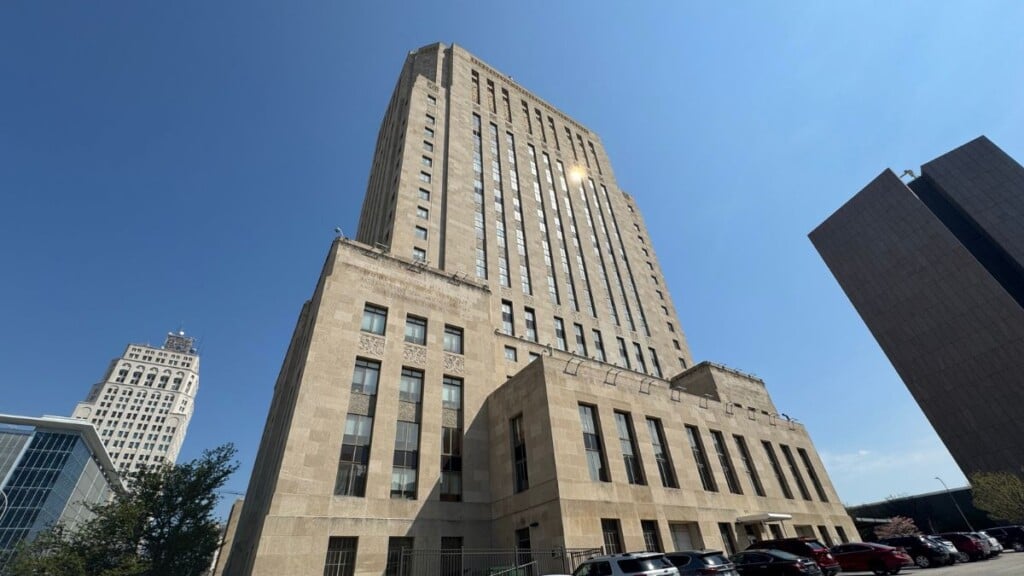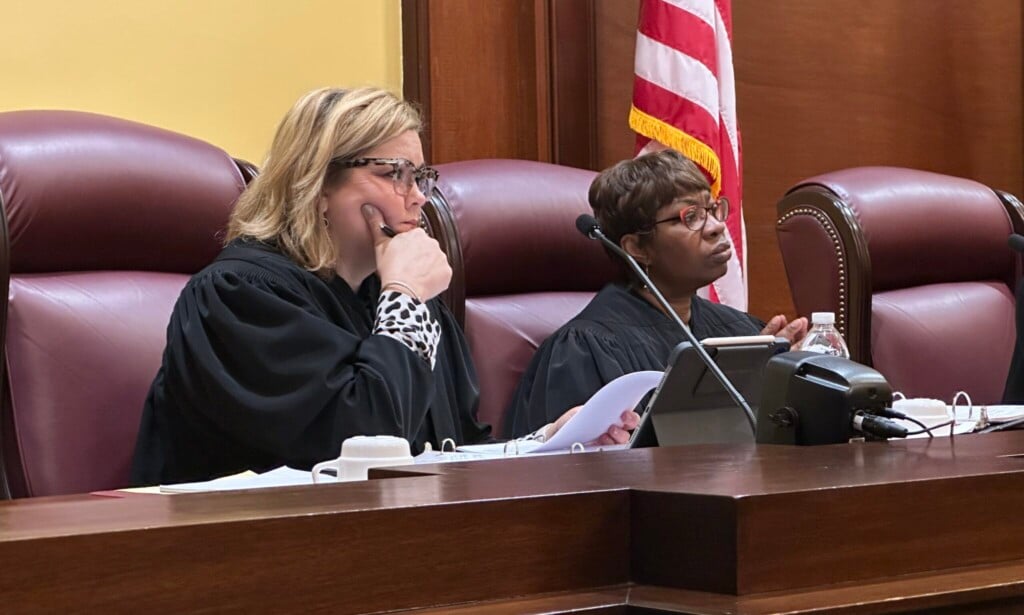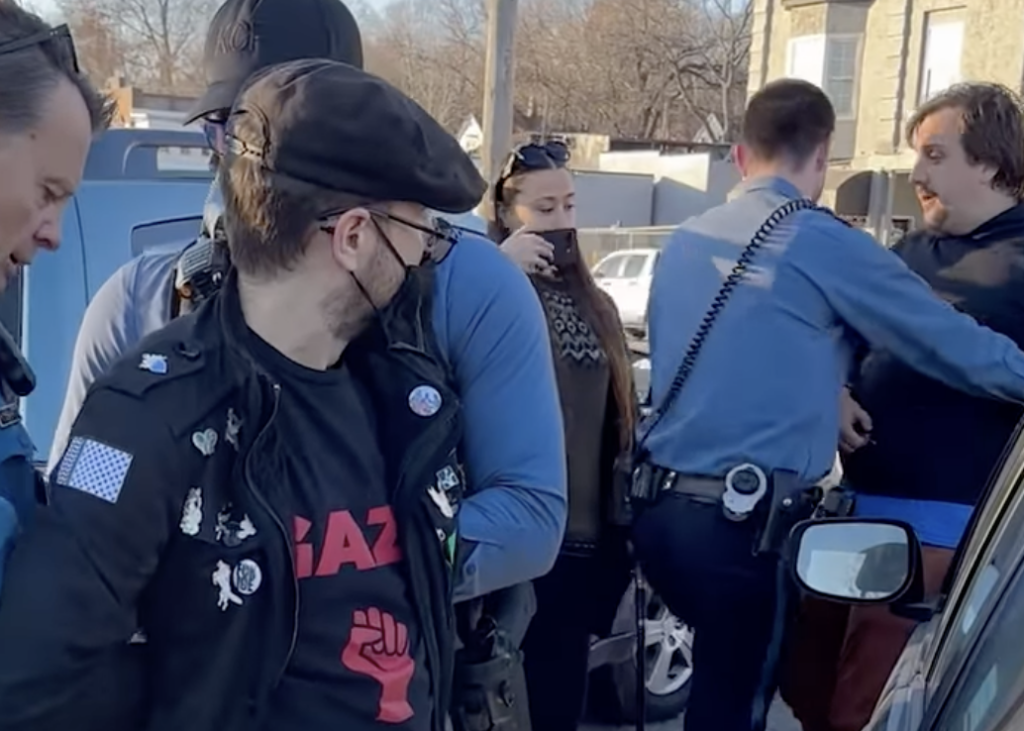Missouri advocates for abortion access introduce ballot measures to restore reproductive rights
The announcement ends a wait that unnerved many Missourians who want the state to restore the right to reproductive choice—and without the many restrictions on clinics and patients that had made it difficult to obtain an abortion in Missouri even before the procedure was officially banned in the state.

Missourians cast their votes in the general election at the Greene County Election Center on Nov. 8, 2022. // Photo courtesy of the Greene County Clerk’s Office
After months of obstruction from Republican officeholders and internal disputes among the state’s abortion rights groups, advocates are expected to announce today the start of an all-hands-on-deck effort to get a ballot measure restoring access to abortion in front of voters this year.
A petition drive will begin immediately, seeking to create a state constitutional amendment protecting abortion without restrictions up to the point of fetal viability, which is defined as the point in pregnancy when a health care professional determines that a fetus would have a significant likelihood of surviving outside of the uterus without extraordinary medical measures.
After viability, a pregnant person could still legally obtain an abortion if a treating health professional determines that the measure is necessary to protect the life or physical or mental health of the mother.
The campaign will be coordinated by Missourians for Constitutional Freedom, which includes the political arms of Planned Parenthood Great Plains and Planned Parenthood of the St. Louis Region and Southwest Missouri, Abortion Action Missouri, and ACLU of Missouri.
It will require an intense effort. Backers will have to collect nearly 172,000 valid voter signatures by May 5 to get a petition on a statewide ballot this year. A rule of thumb is that supporters will actually need nearly double the number of required signatures to make sure enough pass muster when vetted by the secretary of state’s office.
That will require the help of volunteers around the state, and likely a boost from paid signature gatherers. Details about the campaign and how to obtain and sign petitions can be found at moconstitutionalfreedom.org.
The short window and high cost of a statewide campaign—estimated at around $30 million—had led to speculation from both supporters and opponents of abortion as to whether national groups would come through with money and other resources to get an initiative passed in Missouri this year.
Missourians for Constitutional Freedom said the state couldn’t wait.
“Decisions around pregnancy, including abortion, birth control, and miscarriage care, are personal and private and should be left up to patients and their families,” the coalition said in a news release.
“But here in Missouri, politicians are making that decision for patients. They’ve already banned abortion. Pregnant Missourians are in danger–facing some of the highest rates of maternal mortality and without treatment options for life-threatening pregnancy complications. OBGYNs and maternity practices are packing up and moving away to avoid political harassment and criminalization. We don’t have time to wait. Together, we are going to end Missouri’s cruel abortion ban.”
The announcement ends a wait that unnerved many Missourians who want the state to restore the right to reproductive choice—and without the many restrictions on clinics and patients that had made it difficult to obtain an abortion in Missouri even before the procedure was officially banned in the state.
That happened on June 24, 2022, when the U.S. Supreme Court issued the Dobbs decision, which overturned long-held precedent giving women in the U.S. the right to legally terminate a pregnancy. Going forward, abortion rights would be up to state legislatures.
The Missouri legislature had already prepared “trigger” statutes in anticipation of just such a ruling. Immediately after the Dobbs ruling was announced, the state attorney general at the time, Eric Schmitt, issued an opinion putting those statutes into effect.
Abortion in Missouri is currently banned in all instances except to save the life of a pregnant person or prevent serious risk to the person’s physical health. Even in those circumstances, Missouri law requires an “affirmative defense,” meaning a medical provider may have to prove in court that an abortion met the state’s standards for a legal exception.
Immediately after Dobbs, health providers and others began eyeing Missouri’s initiative petition process, which citizens and groups have used to legalize recreational marijuana, expand Medicaid access and enact other measures unpopular with the state legislature.
Hopes for regaining abortion access through the ballot gained momentum after Kansas voters in August 2022 decisively voted to preserve the right to constitutional abortion in the state.
So far, Ohio and Michigan have used initiative petitions to expand abortion rights. More states could follow this year.
But Missouri Secretary of State Jay Ashcroft and Attorney General Andrew Bailey went to inventive lengths to obstruct the process of preparing the language for an initiative petition. Ashcroft replaced accurate ballot summaries with language straight out of the anti-abortion playbook; Bailey suggested that expanded access to abortion would cost Missouri millions, if not trillions of dollars by decreasing the number of people who might one day pay taxes in the state.
Courts consistently deemed the efforts of the two officials to be unconstitutional. The final legal barriers were cleared in November. But providers and advocates continued to wrangle over how much access to ask for. They polled options on how far along in a pregnancy abortion should be permitted without restrictions and settled on the viability threshold, even though that marker is controversial among some advocates in Missouri and elsewhere.
Jamie Corley, a Republican political operative, is also working on an initiative petition effort that would allow abortion to take place without restrictions up to 12 weeks along in a pregnancy, and up to the point of viability in cases of rape, incest and when the mother’s life is threatened.
Her limited approach has been criticized by longstanding abortion advocates and providers in the state, who have now united under the umbrella of Missourians for Constitutional Freedom.




